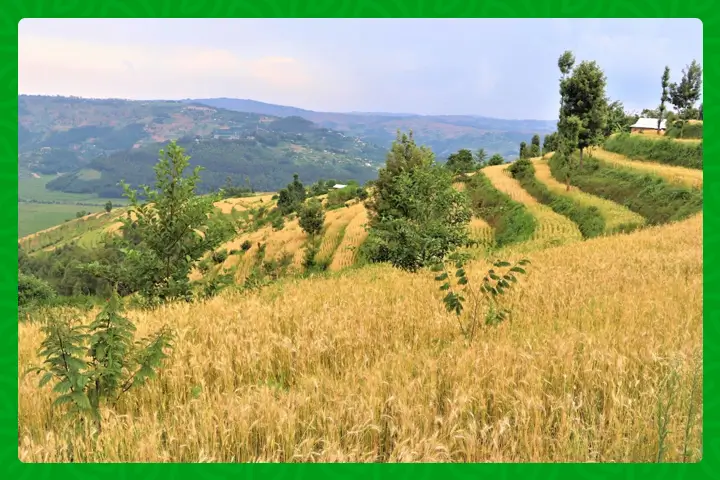
In the lush landscapes of Rwanda, a profound agricultural transformation is underway. The Minister of Agriculture and Animal Resources, Ildephonse Musafiri, has set forth a visionary strategy to combat soil erosion and bolster food security in the nation. The heart of this transformative endeavor revolves around conservation agriculture, the construction of terraces on hilly farms, and the art of agroforestry. In this article, we delve into these innovative solutions aimed at preserving the fertile soils that nurture the crops vital for Rwanda’s sustenance and prosperity.
Tackling Soil Erosion Head-On:
At the forefront of this agricultural revolution is the urgent need to address soil erosion, a challenge that directly impacts food security. Soil erosion, the silent force that washes away the fertile topsoil, deprives crops of essential nutrients for growth. Minister Musafiri, in a recent session with the Lower House, outlined key strategies to mitigate this issue, setting the stage for a more robust and sustainable farming landscape.
Agroforestry: A Solution for Fragile Soils:
In hilly districts like Ngororero, Rutsiro, and Rusizi, where terraces often fall short due to the challenging terrain, agroforestry emerges as a promising alternative. Agroforestry involves integrating trees and shrubs into farming systems, helping to stabilize the soil and prevent erosion. These green sentinels not only conserve precious topsoil but also offer additional benefits like improved biodiversity, enhanced carbon sequestration, and a sustainable source of firewood.
Conservation Agriculture: A Paradigm Shift:
Agriculture is making strides with the introduction of conservation agriculture, a paradigm shift in farming practices. This method prioritizes minimal soil disturbance, maintains a permanent soil cover, and encourages plant diversity. The result is an enhanced natural ecosystem both above and below the ground, leading to increased water and nutrient efficiency and sustained crop production. In a bid to control erosion, conservation agriculture is proving to be a game-changer, particularly in regions with fragile soils.
Exponential Growth of Conservation Agriculture:
The success of conservation agriculture is resonating across Rwanda. In 2022, this revolutionary approach was initiated on a trial basis, enabling farmers to cultivate without traditional tilling. Instead, they remove herbs, dig holes, sow seeds, and mulch the soil. Even when the heavens open with rain, the land remains firm. With a remarkable 413 demonstration plots spread across the country, this technique is set to yield impressive results, with higher yields than conventional tillage-based farming.
Terraces: A Time-Tested Solution:
Terraces, a hallmark of Rwandan agriculture, remain a reliable approach to controlling erosion. With an estimated potential of 265,000 hectares, Rwanda has embarked on an ambitious plan to construct terraces across the nation. While achieving 138,000 hectares by June 2023, these structures play a pivotal role in averting the destruction caused by heavy rains. The government, through initiatives like the Commercialisation and De-Risking for Agricultural Transformation project (CDAT), is committed to building an additional 17,000 terraces.
The Urgency of Preservation:
The importance of curbing soil erosion cannot be overstated. A sobering report revealed that over 745,000 hectares of agricultural land in Rwanda face potential erosion annually. To put it in perspective, that’s over three million tonnes of crop produce lost each season, including essential staples like maize and beans. The urgency to address this issue is undeniable, and the nation is stepping up its efforts to preserve its fertile soils and ensure food security.
As Rwanda charts its path to a greener and more food-secure future, conservation agriculture, agroforestry, and the construction of terraces stand as the cornerstones of this remarkable transformation. Minister Musafiri’s vision for a sustainable, resilient, and bountiful agricultural landscape is becoming a reality. With these innovative strategies, Rwanda is not only preserving its fertile soils but also securing the future of its people by ensuring an abundant food supply. Soil erosion may have been a formidable challenge, but Rwanda’s commitment to conservation is now steering the nation toward a prosperous and sustainable tomorrow.
Stay updated with the latest farming tips and agriculture industry news from Africa by subscribing to our newsletter. Don’t miss out on valuable insights and updates. Follow us on Twitter, LinkedIn, and Facebook to join our farming community and stay connected with us.



















